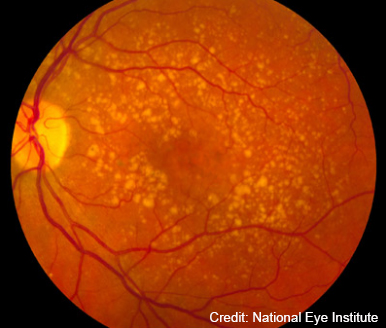An epidemiological study by UBC Faculty of Medicine researchers has shown that repeated injections of a drug to treat macular degeneration is associated with a higher risk of needing surgery to treat glaucoma.
The study, published March 16 in JAMA Ophthalmology, was based on a review of more than 800 people in British Columbia who received injections of bevacizumab (marketed under the trade name Avastin) between 2009 and 2013.
They found that people receiving seven or more injections a year had a 2.5 times higher risk of getting glaucoma surgery.
The study did not establish a cause-and-effect relationship between the two treatments, and it’s unclear why bevacizumab injections might cause glaucoma, which is an increase in fluid pressure inside the eyeball that threatens the optic nerve,
Ophthalmology resident Brennan Eadie, the lead author of the study, told HealthDay that people should not let those findings dissuade them getting the injections, which prevent what had been an untreatable cause of blindness. Glaucoma, if it does develop, can also be treated – depending on the severity, with eye drops, laser surgery, or micro-surgery.
“Even though there may be a risk here, this doesn’t mean you should not be getting injections for macular degeneration,” Dr. Eadie told HealthDay. “This is something we should monitor for, with the understanding there is a real risk of needing glaucoma surgery if the pressure remains elevated.”
“Wet” macular degeneration results from the growth of abnormal blood vessels underneath the retina, and then leak fluid or blood. Bevacizumab blocks vacular endothelial growth factor (VEGF), a protein that promotes development of blood vessels.
Michael Kass, a Professor of Ophthalmology at Washington University School of Medicine in St. Louis and the author of an accompanying editorial, told HealthDay that the injections might cause trauma and inflammation that spurs pressure build-up, or the drug might interfere with the eye’s natural drainage of fluid from the eyeball.
Several other members of the Faculty of Medicine contributed to the study: Professor and Head of the Department of Ophthalmology and Visual Sciences David Maberley, Professor Frederick Mikelberg and Assistant Professor Mahyar Etminan (both in that department), and Professor Bruce Carleton in the Department of Pediatrics.
